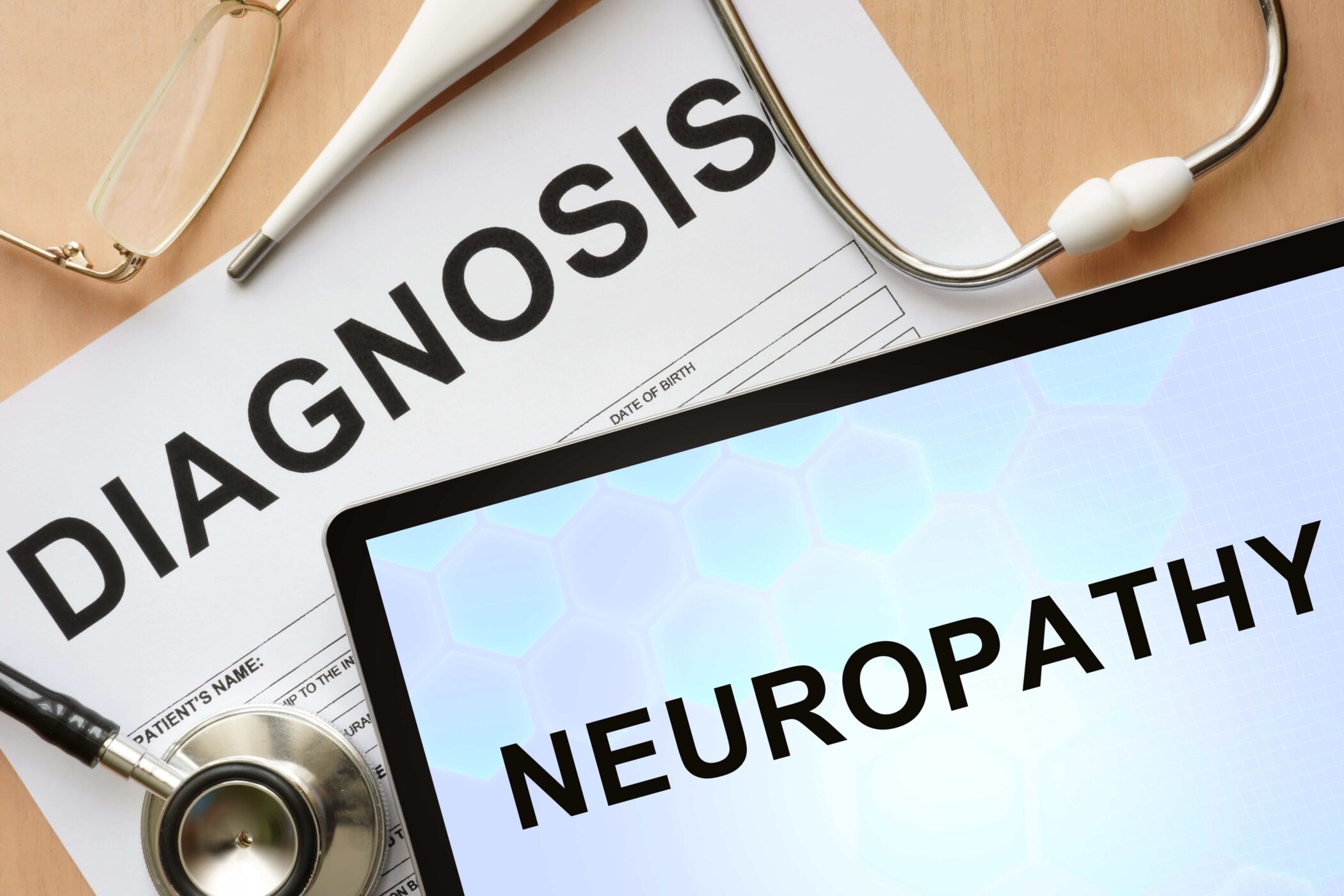People who drink too much may feel tingling or pain in their limbs. This is a form of nerve damage, known as alcoholic neuropathy, where heavy alcohol use damages the peripheral nerves — the ones that help you move (motor nerves) and feel physical sensations (sensory nerves). Alcohol abusers may experience loss of balance, pain, tingling, weakness, or numbness after drinking.
What Is Alcohol Neuropathy?
Alcoholic neuropathy is one of the most common consequences of heavy alcohol use but often goes unrecognized. The symptoms appear slowly and get progressively worse with continued drinking. Often the person does not realize that they are related to alcohol. According to the National Library of Medicine, “Alcohol-related peripheral neuropathy is common, with signs and symptoms in 44% of chronic alcohol abusers.”
Experts believe that alcohol has direct toxic effects on nerves, and repeated excessive consumption harms nerve cells. They also think that alcoholic neuropathy is caused by the nutritional deficiencies that often accompany alcoholism. When the liver and kidneys process alcohol, they also remove a lot of vitamins and other nutrients needed for nerve health along with it. Vitamin deficiency — thiamine, especially — is common in alcoholics.
Symptoms of Alcohol Neuropathy
The symptoms of alcoholic neuropathy include:
- tingling sensations (“pins and needles”) in the arms, legs, hands, and feet
- numbness in the legs and arms
- burning, stabbing, or shooting pains
- muscle weakness, cramps, spasms, and aches
- dizziness
- lack of physical coordination / clumsiness / falling down
- inability to feel pain
- hyperalgesia (increased sensitivity to pain)
- allodynia (when a normal stimulus, like a soft touch, produces pain)
- difficulties urinating or incontinence
- constipation or diarrhea
- impotence
- difficulty talking or swallowing
- heat intolerance
- nausea and vomiting
Alcoholic neuropathy most commonly affects the legs, and is sometimes called “alcohol leg.” The muscle weakness, balance, and coordination issues place a person at greater risk of getting injured in a fall. The numbness and inability to feel pain can make one more susceptible to burns or cuts, increasing the risk of infection.
How Is Alcohol Neuropathy Diagnosed?
Alcoholic neuropathy diagnosis involves a combination of:
- The patient’s medical history
- A thorough physical exam to find any other medical issues that may contribute to symptoms (diabetes, high blood pressure, etc.)
- A neurological exam to determine the extent of damage (possibly including electromyography and nerve conduction studies)
- Blood and urine tests to detect liver or kidney problems, infections, or vitamin deficiencies (particularly A, B1 (thiamine), B3 (niacin), B5 (pantothenic acid), B6 (pyridoxine), B7 (biotin), B9 (folic acid), and B12 (hydroxocobalamin), and E)
Is Alcohol Neuropathy Curable?
There is no “cure” for alcoholic neuropathy, and the damage is sometimes permanent. It is possible to reverse some symptoms, but the effectiveness depends on the length of the alcohol abuse and the extent of the damage. Most alcoholics have been drinking for years, so a relatively short period of abstinence is usually not helpful. Nerve cells can regenerate to some extent, but many alcoholics have been drinking long enough that some nerve cells are dead and beyond repair. A commitment to living a healthy lifestyle can bring significant improvement, and in some cases, a full recovery. There is only one hard and fast rule — the symptoms will get worse with continued alcohol consumption.
In some instances, a doctor may do a nerve biopsy that can show if the nerve damage is consistent with alcoholic neuropathy, or from another cause.
“Curing” alcoholic neuropathy takes hard work. The toughest first step is the obvious one — the patient must stop drinking. Many times, this requires a full alcohol detoxification and rehab program. If the patient continues to drink, the disease will progress and affect the internal organs, digestion, basic balance and coordination, and even the urinary tract and sexual function.
The goal of alcoholic neuropathy treatment is to improve quality of life by offering relief from symptoms. The treatment and recovery process is different for everyone, as everyone’s situation is unique.
Treatment For Alcohol Neuropathy
The following are beneficial treatments for alcoholic neuropathy:
- Alcohol detox and rehab (if the damage is minor, this may be sufficient)
- Diets of nutrient-rich, wholesome, and healthy foods
- Pain medications to reduce nerve pain and discomfort — carefully managed to minimize the potential for abuse and addiction.
- Antidepressants and anticonvulsants — also closely managed
- Physical therapy to improve muscle function and strength, and manage pain
- Dietary supplements that include the B vitamins and other nutrients
- Coping techniques to manage the loss of sensation to help prevent accidents and injuries (e.g. making sure that bath water is not too hot, a daily check of the numb areas for wounds)
- Orthopedic appliances like braces or splints provide support and improved muscle function
- Other therapies are available — chiropractic care/body manipulation, acupuncture, meditation, massage therapy, or electrical nerve stimulation (using small electric currents on the skin)
A comprehensive rehab program with a medical detox component can help alcoholics get sober and stay that way. Many programs will help manage co-occurring disorders like alcoholic neuropathy, so the recovering patient can live a more comfortable and sober life.
Why Choose Bridges Of Hope?
Our treatment philosophy is based on a comprehensive and integrated approach to addressing all issues related to substance use and mental health disorders. We leave nothing to guesswork as we utilize therapeutically proven, evidence-based clinical practices. We place superior patient care as our highest priority and offer them all-inclusive treatment services.
Contact us today to learn more.


 Verify Insurance
Verify Insurance
 Toll Free Call
Toll Free Call